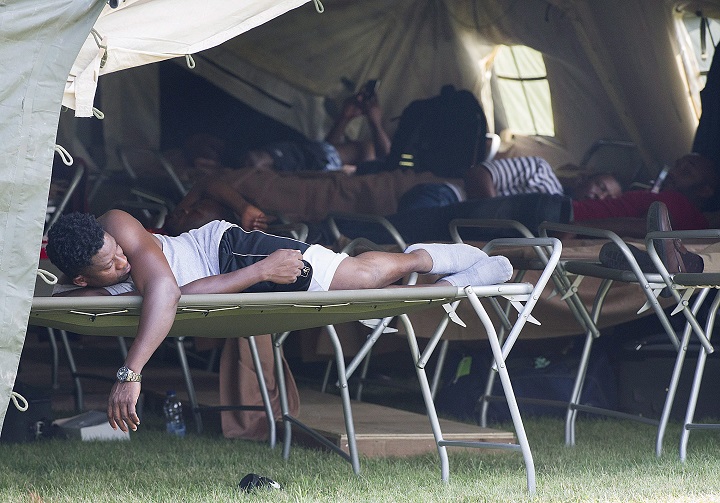The union representing Canada’s border agents is furious after an occupational health advisory regarding asylum seekers took more than three weeks to reach frontline officers.

The health notice issued by Health Canada on Aug. 1 made several medical recommendations and precautions for officers working at shelters for asylum seekers, but it wasn’t sent to the Canada Border Services Agency (CBSA) until Aug. 18, according to internal emails obtained by Global News.
“You will find enclosed an advisory from the Public Service Occupational Health Program of Health Canada for immediate distribution to all employees,” read an internal email from CBSA. “Important note: Although the notice is dated August 1, CBSA did not receive it until August 18. This is the reason why it could not be shared earlier.”
WATCH: Number of asylum-seekers crossing into Canada skyrockets in July
Jean-Pierre Fortin, president of the Customs and Immigration Union, called the delay “astounding” and said that officers should have been aware of the health notice immediately.
“It’s certainly unacceptable,” Fortin said, adding the notice wasn’t shared with officers until four days after Aug. 18. “This put our officers at risk. There is no doubt in my mind.”
Fortin said on Aug. 1 CBSA agents were being overwhelmed by the asylum seekers crossing into Quebec.
“At the time it was a major crisis. We had 450-500 people coming per day. We were highly at risk,” he said.
READ MORE: Asylum seekers get health-care benefits first, eligibility questions later
The health notice recommends that “all federal workers who may be working closely with asylum seekers of unknown health status” ensure their vaccinations are up-to-date, including immunization and skin tests for tuberculosis.
The notice also outlines important precautions for dealing with asylum seekers who are coughing and appear to be ill. These include keeping a distance of more than two metres, isolating any individuals who have signs of respiratory illness, practicing regular hand washing, and wearing a surgical mask and gloves.
“Wear a fit-tested NIOSH-approved N–95 respirator or higher protection (disposable or reusable) if unable to maintain a distance of at least two metres from asylum seekers exhibiting signs of respiratory illness,” the advisory said. “A respirator should also be worn when entering a room which has been recently occupied by asylum seekers with symptoms of respiratory illness (i.e., within 2 hours).”
READ MORE: Man charged for assaulting CBSA officer after illegally crossing border into Manitoba
- Canadian man dies during Texas Ironman event. His widow wants answers as to why
- On the ‘frontline’: Toronto-area residents hiring security firms to fight auto theft
- Honda’s $15B Ontario EV plant marks ‘historic day,’ Trudeau says
- Canadians more likely to eat food past best-before date. What are the risks?
Fortin said it is unclear why it took so long to get the advisory in the hands of officers.
Global News reached out to the CBSA and Health Canada for comment but have not received a response.
More than 7,000 asylum seekers arrived in Quebec in July and the first half of August. Most are Haitians who could be threatened with deportation from the United States by the Trump administration. The Quebec government has said about 2,700 of them are under 18.
The sudden influx has pushed the government to set up temporary tent housing in Lacolle, and more recently in Cornwall, Ont.
WATCH: Asylum seekers waiting at Lacolle border

A frontline CBSA officer who works along the Quebec-U.S. border told Global News that while some of the precautions outlined in the advisory are always followed, there should have been additional nurses on the ground to support CBSA workers, including nurses to provide additional vaccines.
The officer said CBSA workers face health risks when dealing with refugees every day, but called on the CBSA to implement more proactive health and safety standards.


















Comments